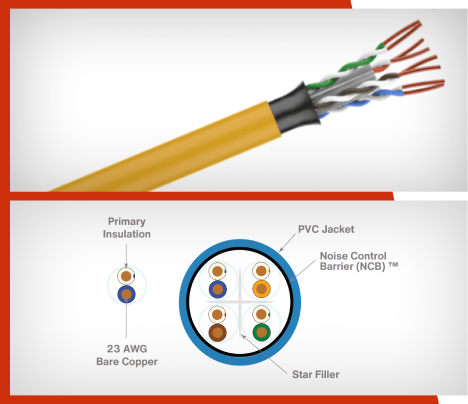Enhance your communication infrastructure with wireless cables, which are ideal for a wide range of applications, including distributed antenna systems (DAS) and cell towers.
Improve patient care with reliable, long-lasting medical cables that support a wide range of medical devices and deliver consistent performance and efficiency in critical healthcare environments.

Our products are proudly manufactured in the USA, ensuring the highest quality standards while supporting local economies—this commitment to domestic production guarantees quicker response times for domestic customers.
We design and manufacture copper premise and fiber optic cable under one ISO 9001:2015-certified roof.
Our success over nearly four decades is driven by industry veterans, many of whom have over ten years of experience at PCA alone.
Our commitment to engineering excellence means that every product adheres to or surpasses the highest industry standards. Our cables deliver reliable performance and durability in many applications, ensuring you get the best results every time.
As leading US cable manufacturers, we conduct thorough testing and quality assurance to ensure that every product meets or exceeds the highest industry standards. This includes extensive in-house testing for durability and performance and compliance with various industry regulations and electronic components to guarantee reliable performance in diverse applications involving high-voltage and low-voltage cables.
Our products are crafted using a range of premium materials, including non-ferrous metals like aluminum and copper, valued for their exceptional conductivity and resistance to corrosion. We also incorporate fiber optics for high-speed data transmission and various high-performance polymers for superior insulation and protection. These materials are chosen to deliver dependable performance and long-lasting durability across diverse applications.
Proterial Cable America’s products are manufactured under ISO 9001:2015 certification, ensuring high quality and consistency. Additionally, we comply with industry-specific standards to guarantee performance and safety, reflecting our commitment to delivering trusted solutions across industries.
Proterial Cable America provides advanced wire and cable solutions for industries such as datacom, telecommunications, medical, and transit. Whether it’s instrumentation cables for medical devices or wire rope for transit applications, our products deliver reliability and performance for a wide range of uses.

Discover how Proterial Cable America played a pivotal role in the ambitious project of modernizing the Internet infrastructure at UConn. This case study delves into the challenges faced, innovative solutions implemented, and the transformative impact on enhancing connectivity for the university community.